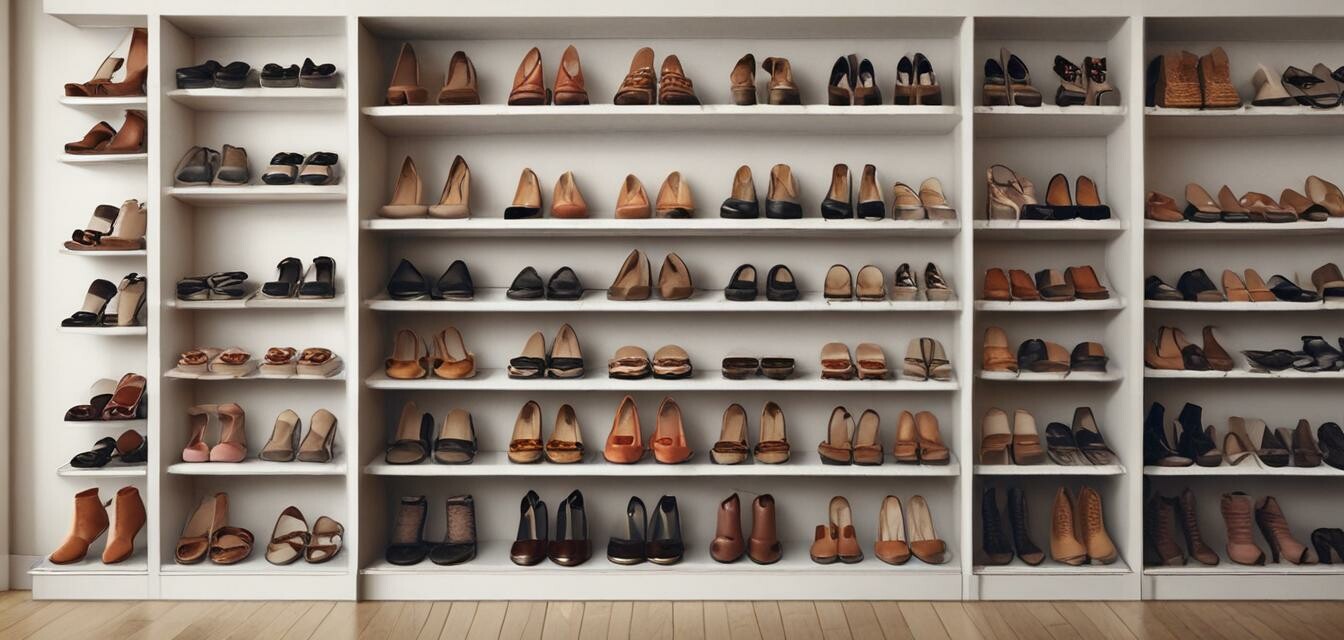
Seasonal Footwear Storage Solutions
Key Takeaways
- Proper storage extends the life of your shoes.
- Use appropriate materials and methods for different shoe types.
- Organizing your footwear can save time and space.
- Consider the weather changes when storing seasonal shoes.
Storing your seasonal footwear properly is essential to ensure they remain in excellent condition when not in use. Whether you are transitioning from summer sandals to winter boots, knowing how to store your shoes can make a huge difference. In this article, we'll provide valuable tips and organization strategies to keep your footwear looking fresh and ready for the next season.
Why Proper Storage is Important
Properly storing your shoes is crucial for several reasons:
- Prevents shape distortion.
- Helps avoid unpleasant odors.
- Protects from dust and environmental factors.
- Extends the overall lifespan of your footwear.
Best Practices for Storing Seasonal Footwear
1. Clean Before Storing
Always clean your footwear before storing them away. Here are some cleaning tips based on the material:
| Material | Cleaning Method |
|---|---|
| Leather | Wipe with a damp cloth and use a leather conditioner. |
| Canvas | Brush off dirt and wash with mild soap and water. |
| Suede | Use a suede brush to remove dirt and restore texture. |
2. Organize by Season
Consider organizing your shoes by season for easy access:
- Spring: Store away winter boots and keep spring flats and sandals at hand.
- Summer: Rotate to summer sandals and evening heels, putting winter shoes in storage.
- Autumn: Bring out autumn loafers while putting away summer sandals.
- Winter: Store all open shoes and get your winter boots ready.
3. Use the Right Storage Solutions
Invest in appropriate storage options based on your needs:
- Shoe Boxes: Keep your shoes in their original boxes to protect from dust.
- Shoe Trees: Use wooden or plastic shoe trees to help maintain shape.
- Clear Bins: Consider using clear storage bins for visibility and ease of access.
Optimal Conditions for Storage
Keep the following factors in mind for an ideal storage environment:
- Store in a cool, dry place to prevent moisture buildup.
- Avoid direct sunlight as it can fade materials.
- Ensure adequate ventilation to prevent odors.
Additional Organization Tips
By incorporating these organization strategies, you can easily manage your seasonal footwear:
- Label boxes for easy identification.
- Store boots vertically to save space.
- Stack smaller items inside larger ones.
Common Mistakes to Avoid
Be aware of these common pitfalls when storing your footwear:
- Ignoring cleaning before storage.
- Storing wet shoes, which can lead to mold.
- Stacking shoes haphazardly, risking damage.
- Packing shoes too tightly, which can distort their shape.
Tips for Beginners
- Start by organizing your current collection.
- Research storage solutions that fit your space.
- Keep seasonal shoes in places you can easily reach.
Pros
- Organized footwear saves time when getting ready.
- Proper storage increases shoe longevity.
- Helps you to find the perfect pair without hassle.
Cons
- Initial time investment to properly organize.
- May require purchasing storage solutions.
- Needs regular maintenance for effectiveness.
Final Thoughts
By taking the time to properly clean, store, and organize your seasonal footwear, you can ensure that they stay in great condition and are ready to wear when the season changes. Remember to regularly check on your stored shoes to maintain their quality and extend their lifespan.
For more tips related to footwear care, visit our Footwear Care Tips category.